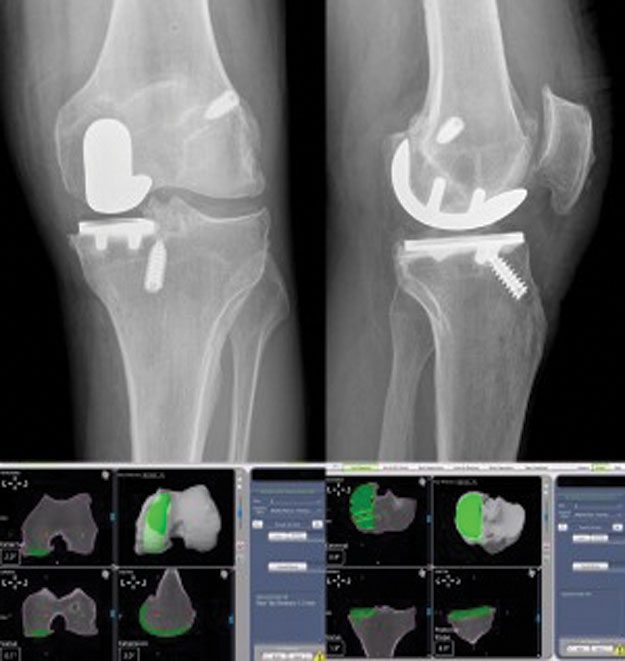By Joseph Noah, M.D.
Robot-assisted surgery for knee replacement can help restore an active lifestyle.
She’s in her 70s, and her arthritic knee hurts constantly. She’s using a cane or walker now, and can’t do daily walks with friends.
Her knee is just too painful.
Fortunately, technological advances in robotic surgery make partial or total knee replacement viable options for many patients, including people of advanced age.

Robotic surgery makes joint replacement surgery much more precise than in the past. It’s where engineering design meets orthopaedic surgery. For many people with damaged or diseased bone in the knee, robot-guided surgery can be life changing.
Here’s how it works.
The patient undergoes a preoperative CT scan. A technician loads the CT data into a computer, and I review the information to create a preliminary surgical plan. In the operating room, the computer directs me in mapping out the patient’s knee using a probe that transmits the information to the computer navigation system.
The result is a very reliable, three-dimensional model of the patient’s knee, in much the same way that engineers design products today, or an architect designs a building. With the design programmed into the robot’s computer, I guide the robot’s surgical arm to make cuts by the millimeter.
In partial knee replacement (PKR), we save healthy bone and remove only damaged bone. Then we implant the artificial partial knee. The entire procedure takes under 90 minutes and usually requires no hospitalization.
Not everyone is a candidate for PKR, however. It is not suitable for people with massive deformities or extensive knee damage from arthritis or injury. People who have had ligament damage around the knee also may not be candidates for PKR.
The process for robot-guided surgery for total knee replacement is similar to PKR, but we resurface the entire joint and replace it with an implant. The benefit in using the robot is precision. With the 3-D model and our surgical plan loaded into the computer, we can align the joint for a better fit, greater comfort, and longer wear for the ‘new’ knee.
For people experiencing knee pain that limits their mobility, this surgery can be life changing. For more information about robot-assisted surgery for knee replacement, call 941.483.7277.
Joseph Noah, M.D., a board-certified orthopaedic surgeon specializing in sports medicine at Suncoast Orthopaedic Surgery & Sports Medicine in Venice. Dr. Noah performs robot-guided surgery for partial and total knee replacement at Venice Regional Bayfront Health.
Venice Regional Bayfront Health
Call 941.483.7277 or visit VeniceRegional.com









